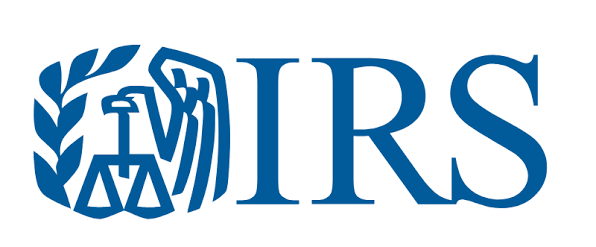Get Ready for Taxes: Get ready now to file 2020 federal income tax returns
WASHINGTON – The Internal Revenue Service today encouraged taxpayers to take necessary actions this fall to help them file their federal tax returns timely and accurately in 2021, including special steps related to Economic Impact Payments.
This is the first in a series of reminders to help taxpayers get ready for the upcoming tax filing season. A special page, updated and available on IRS.gov, outlines steps taxpayers can take now to prepare for the 2021 tax return filing season ahead.
Steps taxpayers can take now to make tax filing easier in 2021
Taxpayers should gather Forms W-2, Wage and Tax Statement, Forms 1099-Misc, Miscellaneous Income, and other income documents to help determine if they’re eligible for deductions or credits. They’ll also need their Notice 1444, Your Economic Impact Payment, to calculate any Recovery Rebate Credit they may be eligible for on their 2020 Federal income tax return.
Most income is taxable, including unemployment compensation, refund interest and income from the gig economy and virtual currencies.
Taxpayers with an Individual Tax Identification Number should ensure it hasn’t expired before they file their 2020 federal tax return. If it has, IRS recommends they submit a Form W-7, Application for IRS Individual Taxpayer Identification Number, now to renew their ITIN. Taxpayers who fail to renew an ITIN before filing a tax return next year could face a delayed refund and may be ineligible for certain tax credits.
Taxpayers can use the Tax Withholding Estimator on IRS.gov to help determine the right amount of tax to have withheld from their paychecks. If they need to adjust their withholding for the rest of the year time is running out, they should submit a new Form W-4, Employee’s Withholding Certificate, to their employer as soon as possible.
Taxpayers who received non-wage income like self-employment income, investment income, taxable Social Security benefits and in some instances, pension and annuity income, may have to make estimated tax payments. Payment options can be found at IRS.gov/payments.
New in 2021: Those who didn’t receive an EIP may be able to claim the Recovery Rebate Credit
Taxpayers may be able to claim the Recovery Rebate Credit if they met the eligibility criteria in 2020 and:
- They didn’t receive an Economic Impact Payment this year, or
- Their Economic Impact Payment was less than $1,200 ($2,400 if married filing jointly for 2019 or 2018) plus $500 for each qualifying child.
- For additional information about the Economic Impact Payment, taxpayers can visit the Economic Impact Payment Information Center.
Received interest on a federal tax refund? Remember these are taxable; include when filing
Taxpayers who received a federal tax refund in 2020 may have been paid interest. The IRS sent interest payments to individual taxpayers who timely filed their 2019 federal income tax returns and received refunds. Most interest payments were received separately from tax refunds. Interest payments are taxable and must be reported on 2020 federal income tax returns. In January 2021, the IRS will send a Form 1099-INT, Interest Income, to anyone who received interest totaling at least $10.
Although the IRS issues most refunds in less than 21 days, the IRS cautions taxpayers not to rely on receiving a 2020 federal tax refund by a certain date, especially when making major purchases or paying bills. Some returns may require additional review and may take longer.
EITC/ACTC-related refunds should be available by first week of March
By law, the IRS cannot issue refunds for people claiming the Earned Income Tax Credit or Additional Child Tax Credit before mid-February. The law requires the IRS to hold the entire refund − even the portion not associated with EITC or ACTC. The IRS expects most EITC/ACTC related refunds to be available in taxpayer bank accounts or on debit cards by the first week of March, if they chose direct deposit and there are no other issues with their tax return. Taxpayers should “Where’s My Refund?” for their personalized refund date.
With social distancing continuing, taxpayers can stay home and stay safe with IRS online tools
Taxpayers can find online tools and resources to help get the information they need. These IRS.gov tools are easy-to-use and available 24 hours a day. Millions of people use them to find information about their accounts, get answers to tax questions or file and pay their taxes.
Almost everyone can file electronically for free. The IRS Free File program, available only through IRS.gov or the IRS2Go app, offers brand-name tax preparation software packages at no cost. The software does all the work of finding deductions, credits and exemptions for you. It‘s free for those who earned $72,000 or less in 2020. Some of the Free File packages also offer free state tax return preparation.
If you’re comfortable filling out your own tax forms electronically, you can use Free File Fillable Forms, regardless of your income, to file your tax returns either by mail or online.
Taxpayers have several options to find a tax preparer. One resource is Choosing a Tax Professional, which offers a wealth of information for selecting a tax professional.
The Directory of Federal Tax Return Preparers with Credentials and Select Qualifications can help taxpayers find preparers in their area who currently hold professional credentials recognized by the IRS, or who hold an Annual Filing Season Program Record of Completion.
Taxpayers can use the Interactive Tax Assistant beginning in January 2021 to get answers to a number of tax law questions. The ITA can help determine if a type of income is taxable, if someone is eligible to claim certain credits, or if they can deduct expenses on their tax return.
Taxpayers can check the status of their refund using “Where’s My Refund?“. The status is available within 24 hours after the IRS receives their e-filed tax return or up to four weeks if they after they mailed a paper return. The “Where’s My Refund?” tool updates once every 24 hours, usually overnight, so taxpayers only need to check once a day.
The best and fastest way for taxpayers to get their tax refund is to have it direct deposited into their financial account. Taxpayers who don’t have a financial account can visit the FDIC website for information to help open an account online.
Taxpayers are invited to join the Volunteer Income Tax Assistance and Tax Counseling for the Elderly programs. VITA/TCE volunteers receive training to provide free tax return preparation for eligible taxpayers. There’s never been a better time to get ready to help others file and the IRS is rolling out new ways to make volunteering easier. Visit IRS.gov/volunteers to learn more.
This article was originally posted on IRS.gov.


